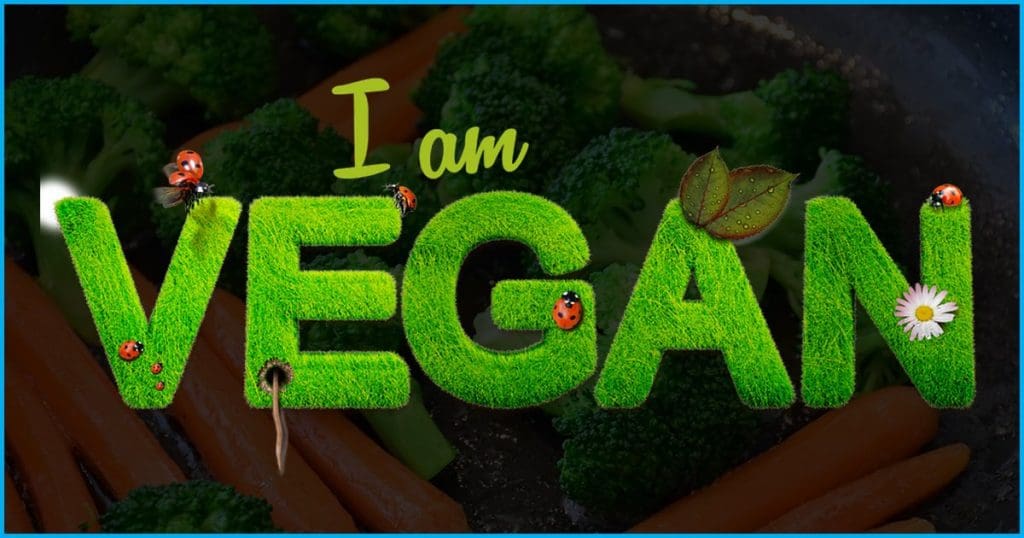Veganism has become a powerful movement, gaining momentum worldwide due to its numerous benefits. Not only does it save the lives of countless animals, but it also has a positive impact on our health and the environment. By eliminating the demand for animal products, adopting a vegan lifestyle helps prevent animal cruelty and exploitation. In addition, going vegan lowers the risk of chronic diseases, improves overall health, and reduces the environmental footprint. In this post, we will explore the power of veganism, its impact on animal welfare, the health benefits it offers, and its potential to create a more sustainable future. Join us as we delve into the world of veganism and discover its many advantages.

The Power of Veganism and its Impact on Animal Welfare
Veganism saves the lives of countless animals by eliminating the demand for animal products. By choosing to adopt a vegan lifestyle, individuals can actively contribute to preventing animal cruelty and exploitation.
Animal agriculture often involves practices that are harmful to animals, including confinement, abuse, and slaughter. By abstaining from consuming animal products, vegans can help reduce the demand for these practices, ultimately leading to improved animal welfare.
The Health Benefits of Adopting a Vegan Lifestyle
Going vegan can lower the risk of chronic diseases such as heart disease and diabetes. By eliminating animal products from your diet, you reduce your intake of saturated fats and cholesterol, which are known to contribute to these health conditions.
A vegan diet can also improve overall health by increasing nutrient intake. Fruits, vegetables, whole grains, legumes, and nuts are all staples of a vegan diet and are rich in essential vitamins, minerals, and antioxidants. These nutrients help boost your immune system, support healthy digestion, and promote glowing skin.
Furthermore, adopting a vegan lifestyle can help you maintain a healthy weight. Plant-based foods tend to be lower in calories and high in fiber, keeping you feeling fuller for longer. This can aid in weight loss and prevent obesity, a known risk factor for many chronic diseases.
Additionally, research has shown that a vegan diet can have positive effects on mental well-being. Plant-based foods are rich in nutrients that support brain function and may help reduce the risk of cognitive decline. Moreover, the compassion and empathy promoted by veganism can contribute to improved mental health, reducing feelings of anxiety and stress.
Reducing the Environmental Impact Through Veganism
Choosing a vegan lifestyle has a significant impact on the environment by reducing various sources of pollution and resource consumption.
Veganism helps reduce greenhouse gas emissions, which are a major contributor to climate change. The production of animal-based foods results in significant carbon dioxide, methane, and nitrous oxide emissions. By eliminating the consumption of animal products, veganism helps combat climate change and minimize the environmental damage caused by intensive animal agriculture.
In addition to reducing greenhouse gas emissions, veganism also helps conserve water resources. Animal agriculture requires vast amounts of water for the production and processing of animal products. By opting for a plant-based diet, individuals can greatly reduce their water footprint and contribute to the conservation of this valuable resource.
Furthermore, animal agriculture is a leading cause of deforestation. Large areas of forests are cleared to make way for livestock farming and the cultivation of animal feed crops. By choosing veganism, individuals can play a role in reducing deforestation and protecting biodiversity.
Overall, embracing a vegan lifestyle is an effective way to minimize the environmental impact of our food choices and promote a more sustainable future.
Exploring the Ethics of Veganism
Veganism promotes ethical treatment of animals by challenging the notion of exploiting sentient beings for food, clothing, and other purposes. By adopting a vegan lifestyle, individuals align themselves with principles of justice and fairness.
Animals raised for human consumption often endure inhumane conditions and are subjected to cruel practices. Veganism helps raise awareness about animal rights and creates a demand for cruelty-free products. By supporting veganism, individuals contribute to the fight against the exploitation of animals for various purposes.
Veganism as a Key to Sustainable Living
Embracing veganism contributes to a more sustainable and eco-friendly future. By choosing plant-based alternatives, individuals can reduce resource consumption and waste production.
One of the ways veganism promotes sustainability is by reducing greenhouse gas emissions and combating climate change. Animal agriculture is a significant contributor to greenhouse gas emissions, surpassing the emissions from the transportation sector. By eliminating the consumption of animal products, individuals can greatly reduce their carbon footprint.
In addition to reducing greenhouse gas emissions, veganism also helps conserve water resources. Animal agriculture requires large amounts of water for animal rearing, feed production, and processing. By adopting a vegan lifestyle, individuals can help conserve water and alleviate the strain on water sources.
Furthermore, veganism plays a crucial role in reducing deforestation. Animal agriculture is a leading cause of deforestation as vast areas of land are cleared for livestock grazing and feed production. By choosing plant-based alternatives, individuals can help protect forests and preserve biodiversity.
Overall, embracing veganism is a powerful choice in building a sustainable future. It minimizes environmental impact, conserves resources, and helps create a more harmonious relationship between humans and the planet.
Promoting Animal Rights through Veganism
Veganism helps raise awareness about animal rights and creates a demand for cruelty-free products. By choosing a vegan lifestyle, individuals actively support the fight against the exploitation of animals for various purposes. This includes the use of animals in testing, entertainment, and clothing industries.
Supporting veganism not only aligns with ethical principles but also contributes to reducing animal suffering. By opting for plant-based alternatives, individuals can make a positive impact on the lives of animals.
The Connection Between Veganism and Mental Well-being
Research suggests that a vegan diet can improve mood, reduce anxiety, and enhance mental clarity. By consuming plant-based foods, individuals may experience a positive impact on their mental well-being.
A vegan lifestyle promotes compassion and empathy, which can contribute to better mental health. By choosing not to consume animal products, individuals align their values with kindness towards all living beings.
Veganism: A Path to Weight Loss and Optimal Fitness
Many people choose to adopt a vegan diet as a means to achieve weight loss and optimize their fitness levels. Here are some key reasons why veganism can be an effective path towards these goals:

Aid in Weight Loss
One of the advantages of a vegan diet is its potential to support weight loss. Plant-based foods tend to be lower in calories and saturated fat compared to animal products. Additionally, a vegan diet is typically high in fiber, which can help promote feelings of fullness and reduce overeating. Studies have shown that individuals who follow a vegan diet have lower body mass indexes (BMIs) and tend to be leaner compared to those who consume animal products.
Supports a Healthy Body Weight
Adopting a vegan lifestyle can help individuals achieve and maintain a healthy body weight. Vegan diets are typically higher in consumption of fruits, vegetables, whole grains, and legumes, which are all nutrient-dense and low in calorie density. These foods provide essential nutrients while promoting satiety, making it easier to manage and maintain a healthy weight.
Better Athletic Performance and Recovery
For athletes and fitness enthusiasts, a vegan diet can provide the necessary nutrients for optimal performance and recovery. Plant-based foods are rich in carbohydrates, which are the primary fuel source for physical activity. Additionally, plant-based proteins from sources like beans, lentils, tofu, and tempeh can support muscle growth and repair. The abundance of antioxidants found in fruits and vegetables can also help reduce inflammation and aid in post-workout recovery.
Meeting Nutritional Requirements
Contrary to some beliefs, a well-planned vegan diet can provide all the necessary nutrients for overall health and fitness. Key nutrients that may require attention in a vegan diet include protein, iron, calcium, vitamin B12, and omega-3 fatty acids. However, with careful planning and a diverse selection of plant-based foods, it is possible to meet all nutrient requirements. Many vegan athletes and fitness enthusiasts have successfully achieved their goals while following a plant-based diet.
In conclusion, adopting a vegan lifestyle can be a viable path to weight loss and optimal fitness. The emphasis on whole plant foods, along with their associated health benefits, can contribute to improved body weight management, better athletic performance, and meeting all nutritional requirements.
Exploring the Nutritional Benefits of a Vegan Diet
A well-planned vegan diet can meet all nutrient requirements and provide various health benefits. Here are some of the key nutritional benefits of adopting a vegan lifestyle:
1. Abundance of Vitamins and Minerals
Veganism offers an abundance of vitamins and minerals from plant-based sources. Fruits, vegetables, whole grains, nuts, and seeds are rich in vitamins such as vitamin C, vitamin A, and vitamin E. They also provide essential minerals like potassium, magnesium, and iron.
2. Antioxidant-Rich Diet
Plant-based foods are packed with antioxidants that help protect against cellular damage and prevent diseases. Fruits, vegetables, and legumes are excellent sources of antioxidants like beta-carotene, lycopene, and vitamin C.
3. High Fiber Intake
A vegan diet is typically high in fiber due to the abundance of plant-based foods. Fiber aids digestion, promotes regular bowel movements, and helps keep cholesterol levels in check. Legumes, whole grains, fruits, and vegetables are all excellent sources of dietary fiber.
4. Lower Saturated Fat Intake
By eliminating animal products, a vegan diet naturally reduces saturated fat intake. This can help lower the risk of heart disease and other chronic conditions. Plant-based fats like avocados, nuts, and seeds can be consumed in moderation to provide healthy fats.
5. Plant-Based Protein
Contrary to common misconceptions, a well-planned vegan diet can provide sufficient protein. Legumes, tofu, tempeh, seitan, and quinoa are all excellent sources of plant-based protein. These protein sources also come with the added benefits of being low in saturated fat and cholesterol.
6. Potential Weight Management
Adopting a vegan diet can aid in weight loss and help maintain a healthy body weight. Plant-based foods tend to be lower in calories while providing essential nutrients, making it easier to achieve a calorie deficit. The high fiber content of vegan foods can also promote feelings of fullness and reduce overeating.
Overall, a well-planned vegan diet can offer a wide range of nutritional benefits that contribute to optimal health and well-being.
Veganism and the Future of Food
Veganism presents a sustainable solution to feed the growing global population without depleting resources. With the increasing demand for food worldwide, traditional animal agriculture practices cannot keep up with the demand. The production of meat, dairy, and eggs requires vast amounts of land, water, and feed, contributing to deforestation, water scarcity, and the depletion of natural resources.

By embracing veganism, we can shift towards a more efficient and sustainable food system. Plant-based diets require fewer resources and generate lower greenhouse gas emissions compared to animal-based diets. By reducing our reliance on animal agriculture, we can preserve natural habitats, conserve water resources, and mitigate the negative impacts of climate change.
Moreover, adopting a vegan lifestyle supports the development of innovative and alternative food sources. Plant-based alternatives to meat and dairy products continue to advance, offering delicious and sustainable options that cater to various tastes and dietary preferences. With ongoing research and technological advancements, veganism is paving the way for a future where nutritious and environmentally friendly food options are readily available for everyone.
Conclusion
Veganism is more than just a dietary choice; it is a powerful movement that has a profound impact on various aspects of our lives. By adopting a vegan lifestyle, we not only save the lives of countless animals but also contribute to our own health and the health of the planet.
Through veganism, we can prevent animal cruelty and exploitation by eliminating the demand for animal products. This ethical choice aligns with principles of justice and fairness, promoting the ethical treatment of animals.
Furthermore, going vegan has tremendous health benefits. It can lower the risk of chronic diseases such as heart disease and diabetes, improve overall health, and enhance mental well-being. A well-planned vegan diet can provide all the necessary nutrients, vitamins, minerals, and antioxidants from plant-based sources.
Reducing the environmental impact is another crucial aspect of veganism. By opting for plant-based alternatives, we can reduce greenhouse gas emissions, conserve water resources, and combat deforestation for animal agriculture. This not only helps combat climate change but also ensures a more sustainable and eco-friendly future.
Moreover, veganism promotes animal rights and raises awareness about cruelty-free practices. By supporting veganism and demanding cruelty-free products, we can work towards a world where animals are treated with compassion and respect.
Finally, veganism offers a sustainable solution to feed the growing global population without depleting resources. It supports the development of innovative and alternative food sources, paving the way for a more sustainable and secure future.
In conclusion, the power of veganism is undeniable. It has the potential to save animals’ lives, improve our health, protect the environment, promote animal rights, enhance mental well-being, and pave the way for a sustainable future. By embracing veganism, we can make a positive difference in the world and contribute to a better and more compassionate society.

4.3/5 - (20 votes)



